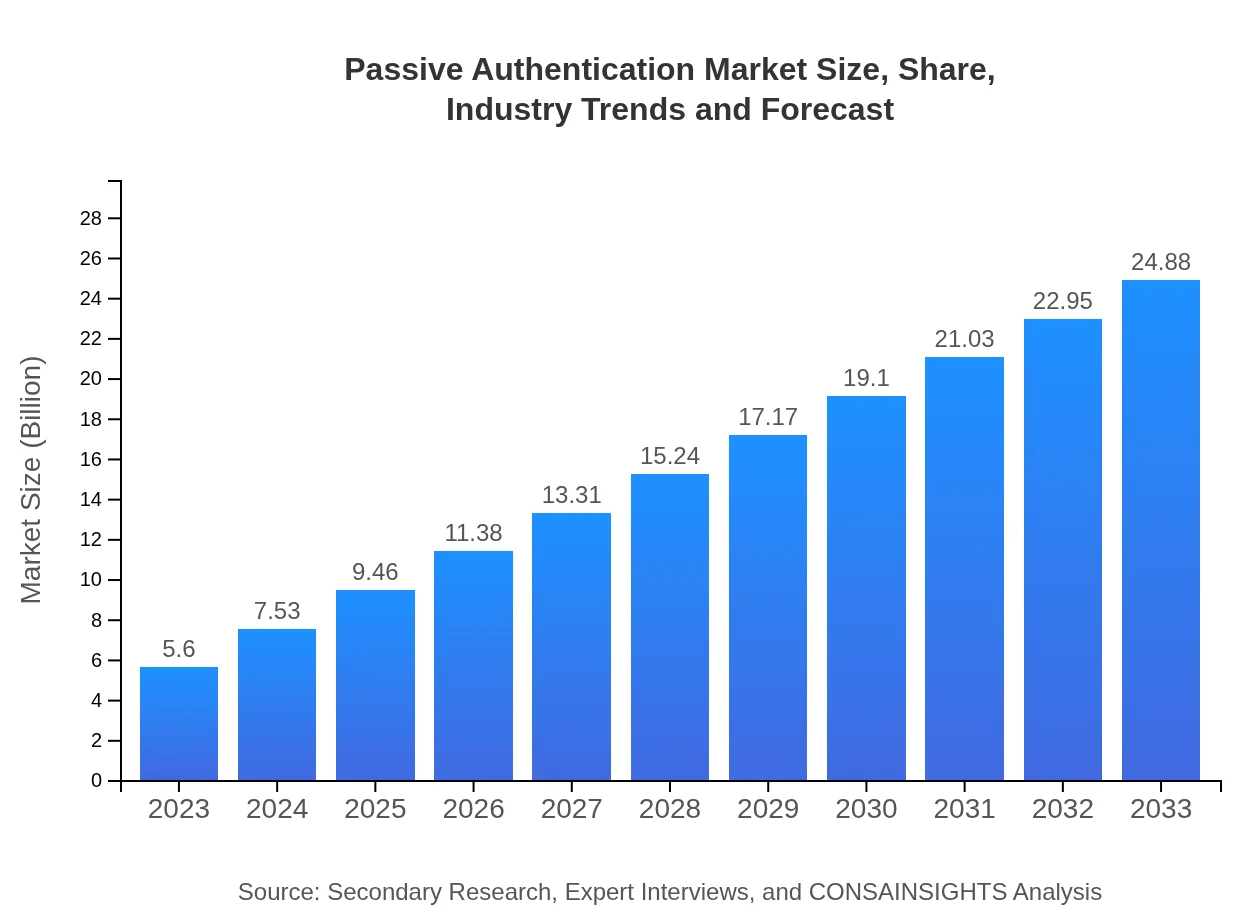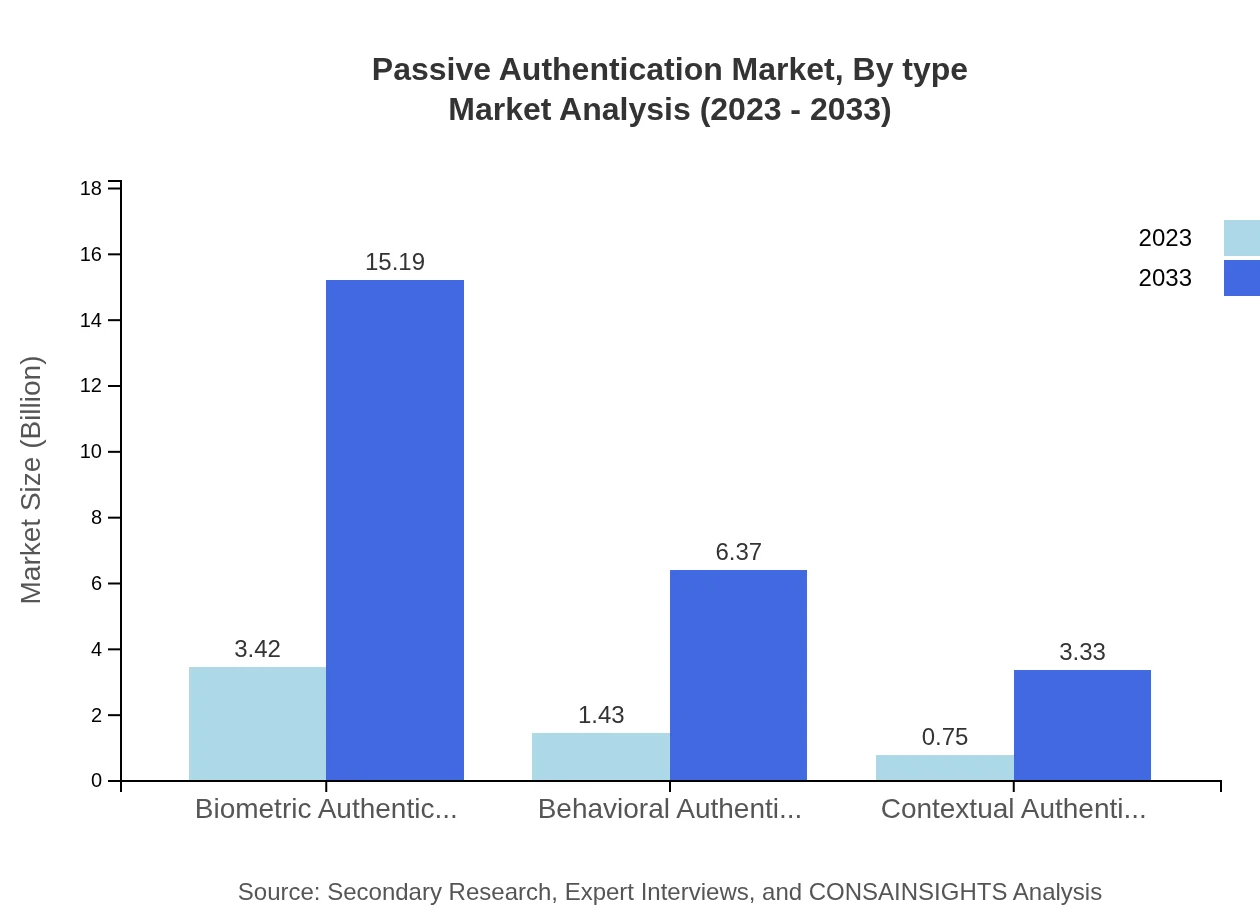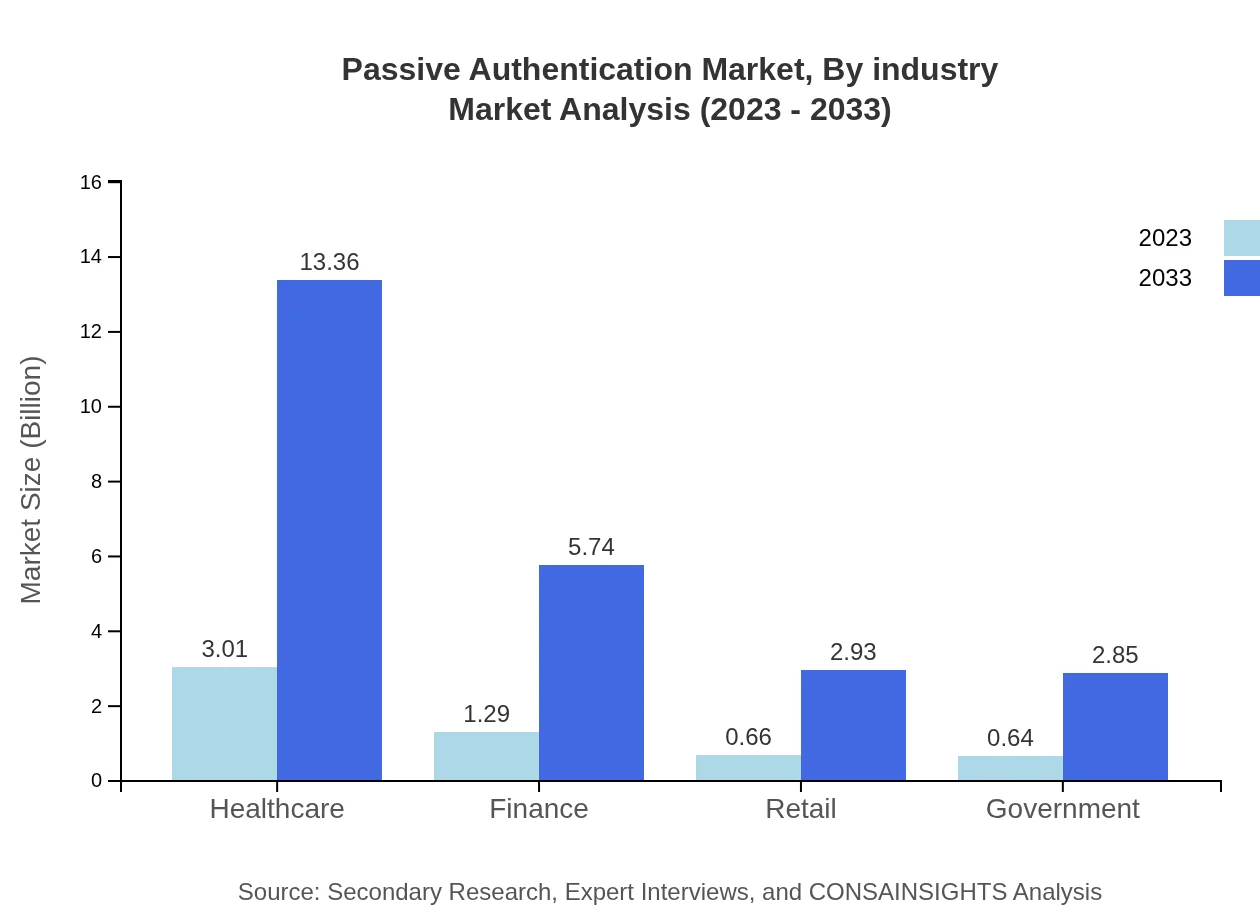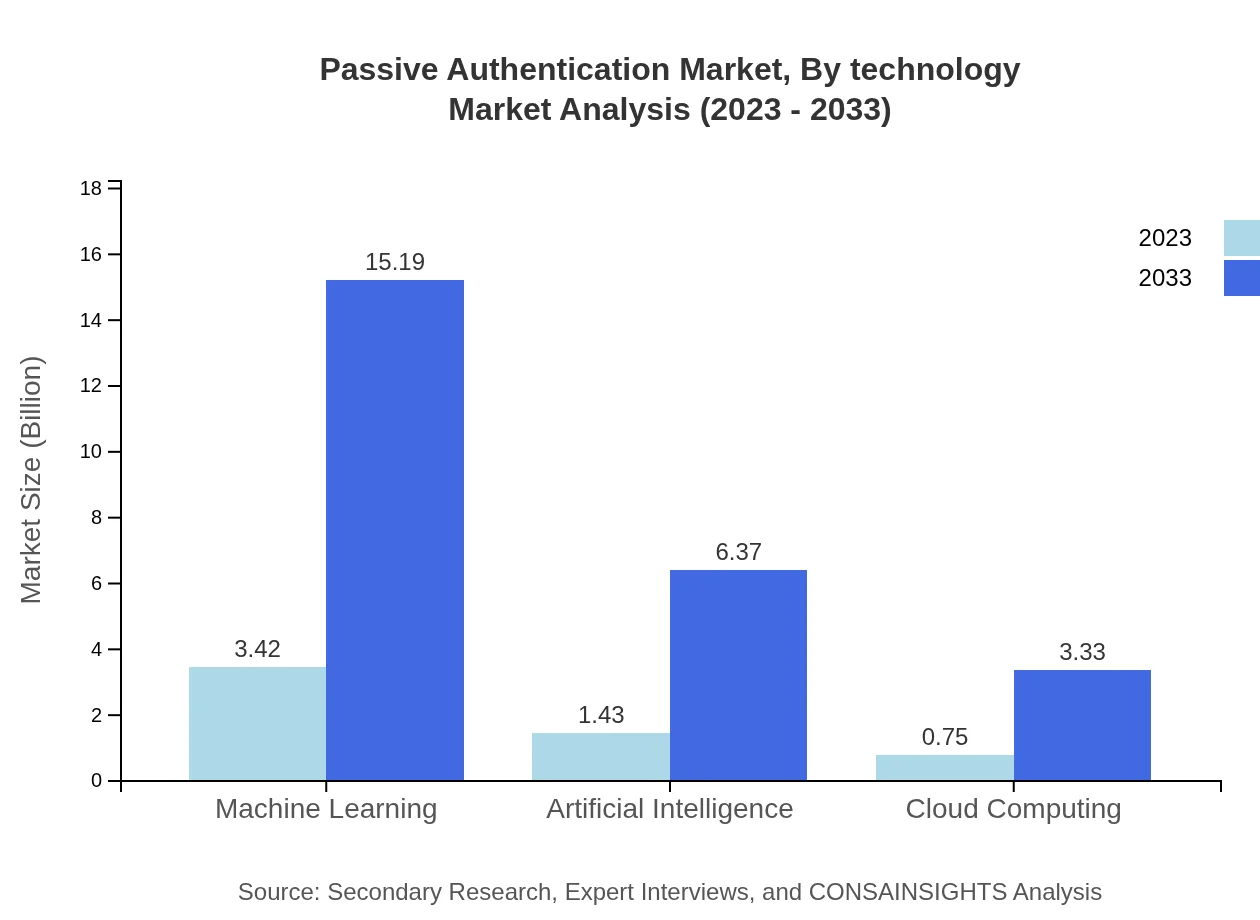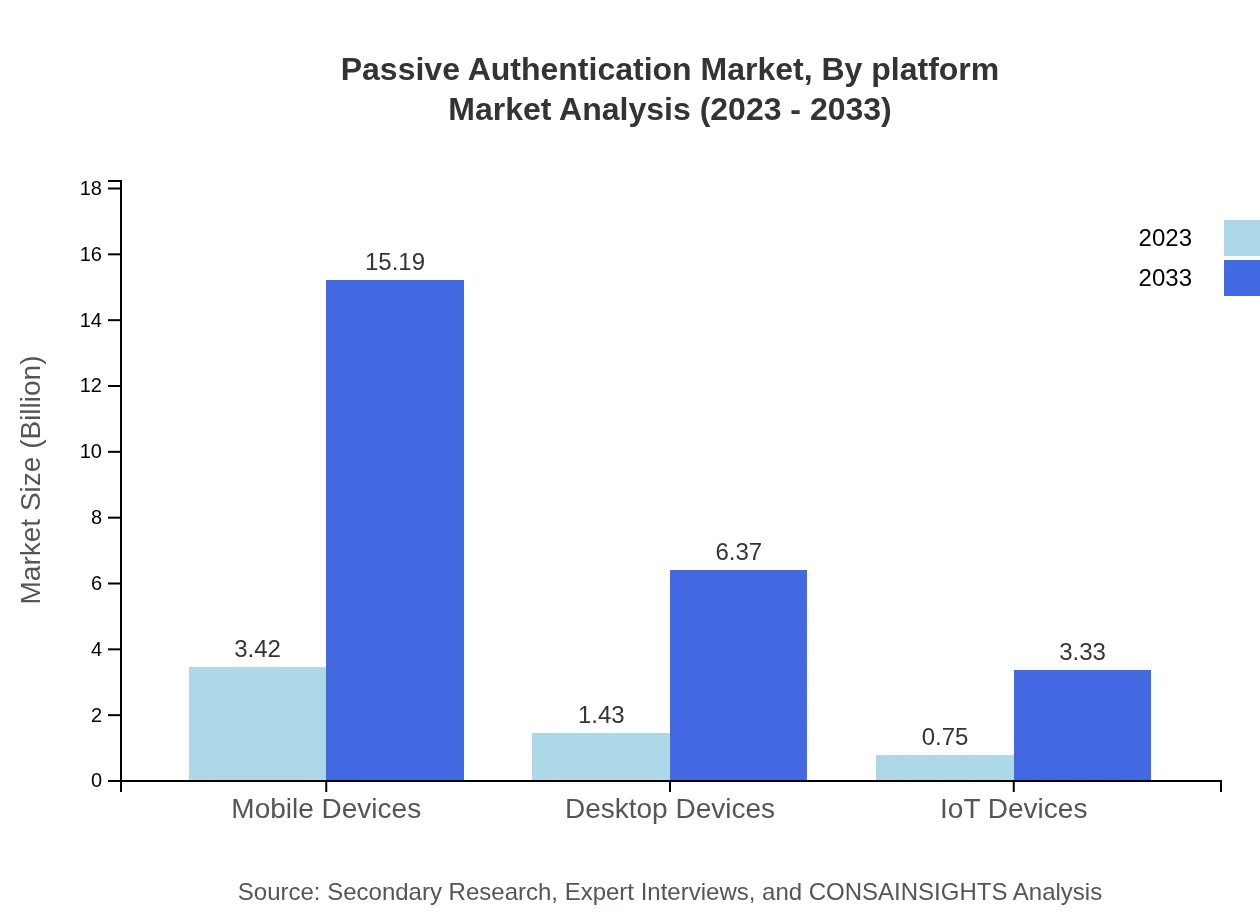Passive Authentication Market Report
Published Date: 31 January 2026 | Report Code: passive-authentication
Passive Authentication Market Size, Share, Industry Trends and Forecast to 2033
This report provides a comprehensive analysis of the Passive Authentication market, covering market size, trends, regional insights, and forecasts from 2023 to 2033. It aims to equip stakeholders with vital data to make informed decisions.
| Metric | Value |
|---|---|
| Study Period | 2023 - 2033 |
| 2023 Market Size | $5.60 Billion |
| CAGR (2023-2033) | 15.3% |
| 2033 Market Size | $24.88 Billion |
| Top Companies | Auth0, Okta, Microsoft, IBM, Duo Security |
| Last Modified Date | 31 January 2026 |
Passive Authentication Market Overview
Customize Passive Authentication Market Report market research report
- ✔ Get in-depth analysis of Passive Authentication market size, growth, and forecasts.
- ✔ Understand Passive Authentication's regional dynamics and industry-specific trends.
- ✔ Identify potential applications, end-user demand, and growth segments in Passive Authentication
What is the Market Size & CAGR of Passive Authentication market in 2023?
Passive Authentication Industry Analysis
Passive Authentication Market Segmentation and Scope
Tell us your focus area and get a customized research report.
Passive Authentication Market Analysis Report by Region
Europe Passive Authentication Market Report:
Europe shows a strong market presence with expected growth from $1.77 billion in 2023 to $7.85 billion by 2033. The region's focus on privacy regulations, such as GDPR, further stimulates demand for robust authentication technologies as organizations seek compliance.Asia Pacific Passive Authentication Market Report:
In the Asia Pacific region, the Passive Authentication market is estimated at $1.10 billion in 2023, expected to escalate to $4.90 billion by 2033, driven by the increasing adoption of digital technologies and rising cyber threats. Governments and businesses are prioritizing security, leading to significant investments in authentication technologies.North America Passive Authentication Market Report:
North America’s market was valued at $1.89 billion in 2023, forecasting to grow to $8.38 billion by 2033. The region is a leader in technological innovations and has stringent cybersecurity regulations, boosting demand for advanced passive authentication solutions.South America Passive Authentication Market Report:
South America's market was valued at approximately $0.20 billion in 2023, with a projected increase to $0.88 billion by 2033. Growth in this region is propelled by the rising need for secure online transactions and government initiatives to enhance cybersecurity.Middle East & Africa Passive Authentication Market Report:
In the Middle East and Africa, the Passive Authentication market stands at $0.65 billion in 2023 and is set to grow to $2.87 billion by 2033, with increasing digitalization efforts and the growing focus on cybersecurity strategies.Tell us your focus area and get a customized research report.
Passive Authentication Market Analysis By Type
The Passive Authentication market by type includes several segments: Biometric Authentication, which dominates the market with a size projected to grow from $3.42 billion in 2023 to $15.19 billion in 2033; Behavioral Authentication, which is anticipated to increase from $1.43 billion to $6.37 billion during the same period; and Contextual Authentication, with an increase from $0.75 billion to $3.33 billion, representative of the growing emphasis on secure, user-friendly solutions.
Passive Authentication Market Analysis By Industry
Passive Authentication in Healthcare is crucial, currently valued at $3.01 billion and expected to rise to $13.36 billion by 2033. The Finance sector, beginning at $1.29 billion in 2023, is projected to soar to $5.74 billion. Retail also shows notable growth, from $0.66 billion to $2.93 billion, underscoring the importance of seamless customer experiences in authentication transactions.
Passive Authentication Market Analysis By Technology
Market segmentation by technology includes Machine Learning, which is forecasted to expand from $3.42 billion to $15.19 billion; Artificial Intelligence, projected to grow from $1.43 billion to $6.37 billion; and Cloud Computing, which is set to increase from $0.75 billion to $3.33 billion. These innovations are pivotal in enhancing the effectiveness and adaptability of authentication systems.
Passive Authentication Market Analysis By Platform
Mobile Devices constitute a significant part of the Passive Authentication market, expected to grow from $3.42 billion to $15.19 billion; Desktop Devices will grow from $1.43 billion to $6.37 billion, while IoT Devices forecast growth from $0.75 billion to $3.33 billion. These segments reflect the shift towards mobile-first and IoT-enabled security solutions.
Passive Authentication Market Trends and Future Forecast
Tell us your focus area and get a customized research report.
Global Market Leaders and Top Companies in Passive Authentication Industry
Auth0:
Auth0 provides enterprise-grade identity management with a strong focus on securing applications across various platforms, specializing in authentication and access management solutions.Okta:
Okta offers cloud-based identity and access management services, enabling secure connections between organizations and their users, enhancing security while streamlining user access.Microsoft:
Microsoft integrates advanced authentication solutions within its Azure platform, focusing on secure access across businesses leveraging the cloud.IBM:
IBM provides robust security solutions through its Watson AI, focusing on adaptive user authentication strategies that enhance security and user experience.Duo Security:
Duo Security specializes in zero-trust security, emphasizing simplicity and security for end-users through dual authentication, contributing significantly to the passive authentication domain.We're grateful to work with incredible clients.









FAQs
What is the market size of passive Authentication?
The passive authentication market is projected to reach $5.6 billion by 2033, with a robust CAGR of 15.3% from 2023 to 2033. This growth reflects increasing demand for seamless authentication solutions in various industries.
What are the key market players or companies in this passive Authentication industry?
Key players in the passive authentication market include major technology firms and cybersecurity specialists. These companies leverage advanced technologies to develop comprehensive authentication solutions, ensuring user security while maintaining convenience in various applications.
What are the primary factors driving the growth in the passive Authentication industry?
Factors driving the growth of the passive authentication industry include rising cybersecurity threats, increased reliance on digital services, and advancements in biometric and behavioral analysis technologies that enhance authentication processes.
Which region is the fastest Growing in the passive Authentication market?
North America is the fastest-growing region in the passive authentication market, projected to grow from $1.89 billion in 2023 to $8.38 billion by 2033. This growth is fueled by technological innovation and high demand for security solutions.
Does ConsaInsights provide customized market report data for the passive Authentication industry?
Yes, ConsaInsights offers tailored market report data for the passive authentication industry. Clients can access customized insights that cater to their specific needs, helping them navigate the dynamic market landscape effectively.
What deliverables can I expect from this passive Authentication market research project?
Deliverables from the passive authentication market research project include detailed market analysis reports, forecasts, segment insights, competitive landscape assessments, and strategic recommendations tailored to your business objectives.
What are the market trends of passive Authentication?
Market trends in passive authentication include the rising adoption of biometric solutions, the integration of AI for predictive authentication, and the shift towards user-centric security models that enhance both convenience and protection.

